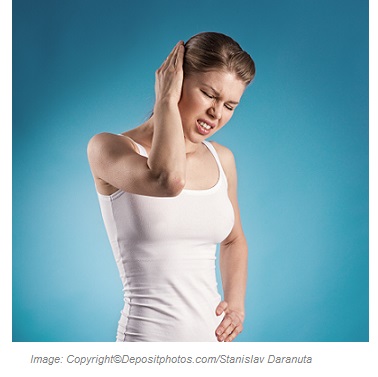 Infection of the external ear is called “Otitis Externa or Swimmer`s Ear”, and infection of the middle ear is called “Otitis Media”.
Infection of the external ear is called “Otitis Externa or Swimmer`s Ear”, and infection of the middle ear is called “Otitis Media”.
Infection of the external ear is common among those who swim in polluted water, diabetes (Malignant Otitis Externa), and people with eczema of the ear.
Zona (Shingles) rarely causes otitis externa.
Infection of the inner ear (Otitis Media) is common in children between 6 months and 2 years of age. Possible contributing factors are: children with HIV, cleft palate, Down`s syndrome, bottle-feeding babies, food allergies, ear wax, upper respiratory tracts infections, ethnicity (Inuits and Native Americans), and second-hand smokers.
Symptoms of ear infection are pain, fever, hearing loss, dizziness and feeling fullness and heavy in the ear. Children with otitis media are often febrile and irritable and may inconsistently pull at their ears. Vomiting, diarrhea, and draining of pus may be seen in children. Adults may complain of tinnitus (ringing of the ear) as well.
Nutritional Support:
Restricted Foods:
- Sweets and sugars. They make the immune system weak.
- Potential allergenic foods: dairy products especially cow`s milk, nuts, egg whites, wheat, orange, and soy products.
Recommended Foods:
- High protein, low fat and high fiber diet.
- Full hydration. Dehydration hinders inflammation and infection from getting better.
- Fresh fruits and vegetables: 6 – 8 servings a day.
- Foods high in Omega – 3: fish, flaxseed, and hemp seeds.
- Berries.
- Garlic.
- Ginger.
Recommended Supplements:
- Multivitamin – Multiminerals: A high potency product.
- Vitamin C: 2 – 3 grams a day.
- Omega – 3 Fatty Acids:1 – 3 grams a day.
- French Maritime Pine Bark Extract: 50 – 100 mg a day. It is a powerful antioxidant that supports the immune system and improves blood circulation.
- Vitamin A: 3000 – 5000 IU a day.
- Grape Seed Extract: 50 – 100 mg a day.
- Aloe Vera Juice (100 – 150% concentrated): ¼ cup 3 to 4 times a day.
- Xylitol (as chewing gums or syrup): 5 – 10 grams a day. Xylitol interferes with the ability of bacteria to attach to the mucosal membranes to cause infection. Consumption of xylitol reduces the incidence of ear and upper respiratory tract infections.

